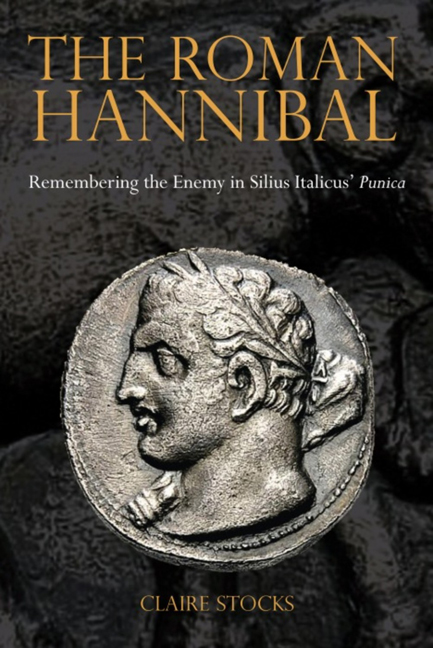Book contents
- Frontmatter
- Contents
- Acknowledgements
- Texts and Translations Used
- Introduction: Silius Italicus and the Roman Hannibal
- Chapter One The Roman Hannibal Defined
- Chapter Two Before Silius: The Creation of the Roman Hannibal
- Chapter Three Silius' Influences
- Chapter Four Epic Models
- Chapter Five Silius' Roman Hannibal
- Chapter Six Out of the Darkness and into the Light
- Chapter Seven Hannibal's Decline after Cannae: Separating Man from Myth
- Chapter Eight Imitators and Innovators
- Chapter Nine Band of Brothers
- Chapter Ten The ‘Lightning Bolts’ (Fulmina) of War
- Chapter Eleven The Man and his Myth: The Self-Defined Roman Hannibal
- Conclusion: The Crossing of the Worlds: The Move from Internal to External Narrative
- Bibliography
- General Index
- Index locorum
Chapter Five - Silius' Roman Hannibal
- Frontmatter
- Contents
- Acknowledgements
- Texts and Translations Used
- Introduction: Silius Italicus and the Roman Hannibal
- Chapter One The Roman Hannibal Defined
- Chapter Two Before Silius: The Creation of the Roman Hannibal
- Chapter Three Silius' Influences
- Chapter Four Epic Models
- Chapter Five Silius' Roman Hannibal
- Chapter Six Out of the Darkness and into the Light
- Chapter Seven Hannibal's Decline after Cannae: Separating Man from Myth
- Chapter Eight Imitators and Innovators
- Chapter Nine Band of Brothers
- Chapter Ten The ‘Lightning Bolts’ (Fulmina) of War
- Chapter Eleven The Man and his Myth: The Self-Defined Roman Hannibal
- Conclusion: The Crossing of the Worlds: The Move from Internal to External Narrative
- Bibliography
- General Index
- Index locorum
Summary
Silius Italicus’ 12,000-line plus epic, the Punica, provides an indulgent exposé of the Roman Hannibal. Every aspect of his life receives some attention, from the fleeting references to his childhood (e.g. 1.70–1) and ignominious death (e.g. 2.704–7), to the more expansive reading of his military campaigns from 218 to 202 bc. The Hannibal we are shown is brilliant, destructive, cruel, and merciful, with a hunger for fame and a passion for all things Roman. In this one epic hero are combined the mortal and mythic aspects of the Roman Hannibal.
It is this two-fold portrayal of Hannibal, the mortal vs. the mythic, that I intend to focus on in this and subsequent chapters. In so doing I aim to develop previous treatments of Silius’ Hannibal which have interpreted his Punica career in terms of a simple ‘rise and decline’. For I argue that it is only Hannibal himself that undergoes this process of success followed by failure, whilst his mythic status continues to grow and evolve.
The tipping point for this process of rise and decline is Cannae, Hannibal's last significant victory and the mid-point of Silius’ epic. Before this we are presented with a steady succession of Hannibal's victories and achievements at Saguntum (Books 1 and 2), in crossing the Alps (3.477– 556), the Ticinus (4.134–479), at the Trebia (4.525–704), and Lake Trasimene (5.186–687). Cannae is frequently cited by ancient and modern writers as Hannibal's greatest victory; certainly, it was the most destructive for Rome with tens of thousands of Romans killed on the battlefield. Silius does not detract from this view, but, like Livy before him, he sees Rome's greatest moment of morality in its worst defeat (10.657–8). So, too, whilst Cannae may mark Hannibal's greatest military success, Silius’ Carthaginian is not at his most potent during this battle. This moment arguably occurs at Saguntum, during the opening two books of the epic, where Hannibal emerges as a Titanic force on the battlefield. This presents us with an intriguing conundrum – a Hannibal who appears at his greatest at the start of his campaign, yet is lauded most for his achievements thereafter. Why?
- Type
- Chapter
- Information
- The Roman HannibalRemembering the Enemy in Silius Italicus’ Punica, pp. 80 - 102Publisher: Liverpool University PressPrint publication year: 2014



